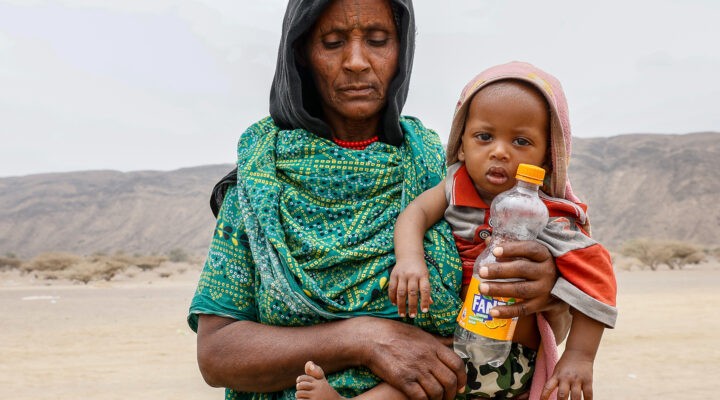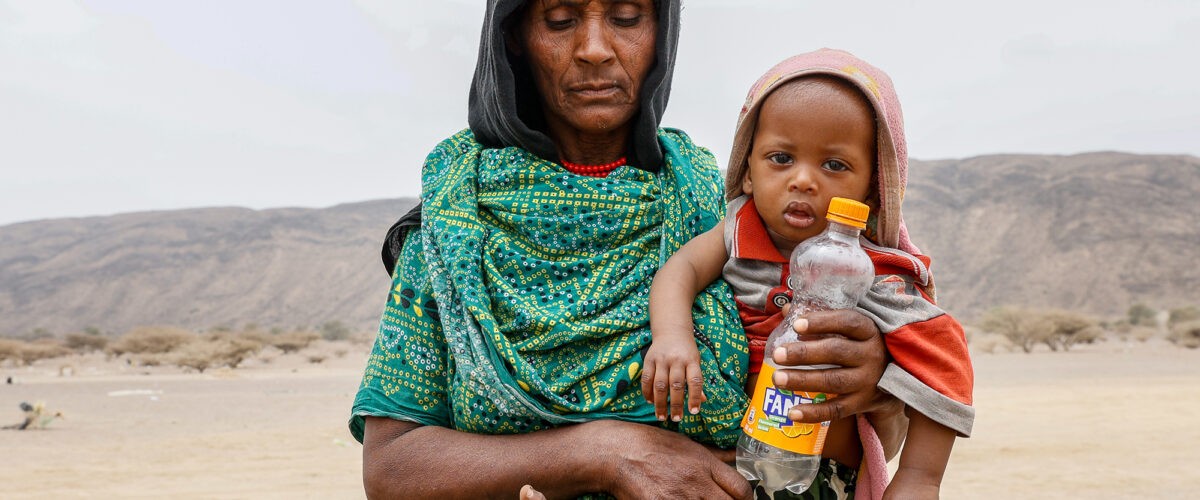Whenever and wherever religious freedom is threatened, so too are the fundamental rights of women and girls, a panel of experts said during a recent virtual hearing before the U.S. Commission on International Religious Freedom.
“Gender-based and religiously based discrimination and inequality often exist in tandem. In fact, research shows a strong correlation between countries with high restrictions on religion and low protections of gender equality,” said Azza Karam, secretary general of Religions for Peace.

Azza Karam
Karam added that the circle of suffering widens even further in societies where women and girls are deprived of legal and religious freedoms. “Religiously based discrimination can entail some gender consequences, and gender-based discrimination has consequences for religious minorities. Women bear the brunt of the violence as targets thereof.”
Disturbingly, surging populist and authoritarian movements worldwide seek to discriminate on the basis of race, religion, gender and sexual orientation, she said. “There are incredible moments of history that we are living through. It is extremely difficult and unwise to ignore the fact that we stand at the cusp of a very critical tipping point of relationships between nations, between communities and between individuals.”
While Karam did not specifically identify the United States in that tipping point, her observations easily could apply to the rise in white Christian nationalism across the nation.
“For a number of years now, we have seen a rise in the normalcy of speech, narratives and actions that discriminate, that make it seem as if prejudice and discrimination of all types based on race, gender, ethnicity, religion — any difference, any diversity — is almost normal,” Karam explained.

Nazila Ghanea
Women and girls must receive a special focus in human rights negotiations and peace efforts, said Nazila Ghanea, professor of international human rights law and director of human rights programs at the University of Oxford in England. “The first thing we need to do is to ensure that they are not silenced, that they are not excluded and that their dignity and full humanity are not denied.”
International human rights laws have long recognized those rights, and the effects have been profound in nations where such values have been recognized, Ghanea said.
“Research has given evidence to the fact that the education of girls has such profound effects on societal progress, on economic well-being and plays a critical role in ensuring peace and security. Yet women and girls suffer violations of human rights and are targeted for violence in both war and in peace time, and they remain invisible or inadequately visible at every level of society.”
This oppression can be especially painful when applied by faith groups, she added. “When religion passes as justification for violating the rights of women and girls, we have forgotten the fundamental canon of human rights — we have forgotten about universality, about indivisibility, about the interdependence of full human rights and indeed of the human family.”
“When religion passes as justification for violating the rights of women and girls, we have forgotten the fundamental canon of human rights.”
But pressing for religious freedom must not venture into dictating how others should believe and worship, Ghanea said. “It does not allow us to impose our standards on others, especially not to do so coercively. It is even questionable whether we have the right to expect others to live according to our standards. We may seek to persuade them without coercion. We should have vigorous and ongoing debates with all who are interested. But we cannot impose our standards.”
She also expressed frustration that the religious and social freedoms of females continue to be denied in so many parts of the world. “Everyone has the right to freedom, thought, conscience and religion. ‘Everyone’ includes women and girls, and it is unfortunate that we need to have to keep restating that.”
But the challenges women face globally also contain the seeds of potential solution, said USCIRF Chair Nadine Maenza.

Nadine Maenza
“Wherever we see religious freedom violations, we also see women taking up the mantle to protect the right to freedom of religion or belief, and to advocate on behalf of those most vulnerable to violence and oppression,” she said. “To working to repeal blaspheming laws to fostering interfaith tolerance, women are often on the front lines of the fight to protect religious freedom worldwide.”
Commission Vice Chair Nury Turkel cited high-profile examples of women asserting leadership in the fight against religious, gender and LGBTQ oppression.

Nury Turkel
“In countries like Pakistan and Russia, women demand the repeal of blasphemy and apostacy laws. In Malaysia and Saudi Arabia, women advocate for the legal rights to interpret Islamic texts and traditions through their own gender-inclusive lens. In Sudan, they played an integral role in ending an authoritarian regime that placed significant restrictions on religious practice and discourse. In countries as diverse as Kenya, Syria and Mali, women led efforts to combat violent extremism, reduce hate and foster interfaith tolerance through dialogue and social services, often at great personal cost. Many of these efforts are global in scope.”
And women’s efforts in these struggles also address the oppression faced by others, Turkel said. “Around the world, women work tirelessly for the protection of atheist, humanist and nonbelievers from the harm and discrimination including women who are members of these communities.”
USCIRF Commissioner Anurima Bhargava noted that women have stepped up even when it meant putting themselves at greater risk.
“We’ve seen time and time again the ways in which women have led efforts to fight for freedom of religion and belief around the world,” she said. “In particular, in Burma where we have seen time and time again women who have, at extraordinary cost to themselves, borne the brunt of the violence and the genocide against the Rohingya. They have also stood for those communities that have inspired not only many across the country but many across the world.”
Related articles:
Does landmark religious freedom legislation need a fix or is it fine as is?
Religious discrimination against women for what they wear (or don’t) is on the rise


